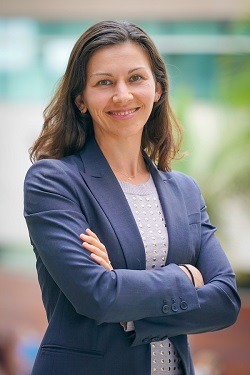
BEHAVIORAL SCIENCES WORKSHOP
Abstract: Insurance choices are often hard to rationalize by standard theory and frequently appear sub-optimal. A key reason may be that people are unable to map the cost-sharing features of plans to their distribution of financial consequences. We develop and experimentally test a decision aid that provides this mapping to simplify comparisons of plan options. In two experiments mirroring typical health insurance decisions, we find that when people choose plans using standard feature-based information, they violate dominance at high rates. Our distribution-based decision aid substantially reduces dominance violations, and also changes choice patterns in situations where there is no dominant option. Choice patterns under feature-based menus can be most easily rationalized by models of heuristic choices, such as minimizing premium or deductible. With the decision aid, though, significantly more people have choice patterns that are better explained by expected utility theory. We compare our distribution-based approach to an alternative of providing estimates of the expected value of costs, which is the most common decision-support available in most insurance markets. Providing expected values affects choices in a similar direction as our consequence-based approach, but in a more muted fashion, and is only about half as effective at reducing dominance violations. (NBER Working Paper 28003 with Justin Sydnor)
Anya Samek is an Associate Professor of Economics and Strategy at the Rady School of Management at the University of California at San Diego (UCSD). She is also a Faculty Research Fellow at the NBER and an affiliate of the FAIR Centre at the Norwegian School of Economics. Professor Samek uses experiments to address questions about how economic theory can predict behavior in the areas of education, philanthropy and health. She was a co-founder of the Science of Philanthropy Initiative - a $5m project that brings together academics and charities to conduct experiments that change our understanding of how we do philanthropy. Over the past 10 years, she has managed CHECC, a large-scale education study that follows 2,000 families who were randomly assigned to receive various early childhood programs.
Professor Samek has published over 60 articles in peer-reviewed journals and they have been featured in popular media outlets, including the New York Times, the Wall Street Journal, FiveThirtyEight, Today.com, NPR and the Freakonomics podcast.
This workshop is open to the Yale community only. It will be held in a hybrid format, simultaneously in person and on Zoom. To receive announcements and invitations to attend, please subscribe at https://csap.yale.edu/behavioral-sciences-workshop.
Cosponsored by the Center for the Study of American Politics (CSAP) and the School of Management’s International Center for Finance and the Lynne & Andrew Redleaf Foundation.
